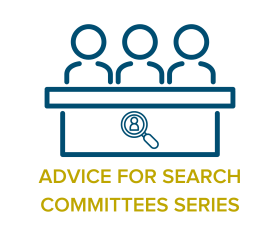This article is part of our series, “Advice for Search Committees.” To view the other articles in the series, click here: Advice for Search Committees.
Whether your nonprofit search committee is tasked with recruiting a new CEO/Executive Director, Chief Development Officer, or any other senior position, you will need a search committee chair in order to be effective and successful. But what does serving as chair of a search committee actually entail? Consider this job description for guidance…
*Note: You will find special considerations/annotations throughout the job description. These will be in italicized, red font.



